'I've been waiting for this': a freshers night out in Liverpool
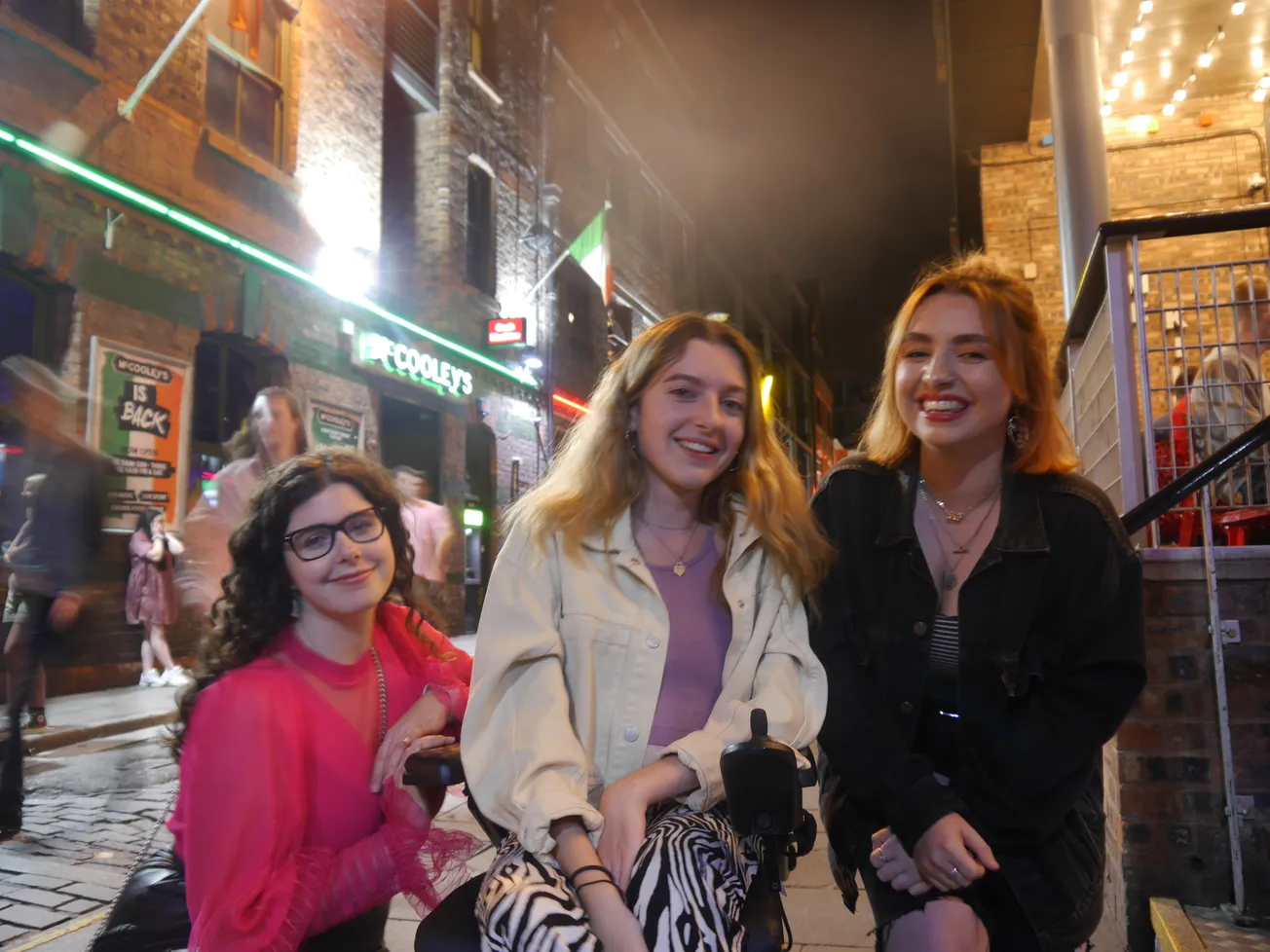
The thoughts of Liverpool's newest students
Dear readers — we hope you’re enjoying the weekend, and welcome to our new subscribers.
Today, we’re bringing you a long read about a night out during freshers week in Liverpool. Students have filled up the city in huge numbers — the Higher Education Statistics Agency estimates the overall student population in Liverpool is 54,000 — and the bars and clubs in the city centre are replete with people. It’s been an unconventional time for students, with a year and a half of national and local lockdowns making socialising and studying nearly impossible. We sent our reporter Mollie Simpson out to capture their feelings as nightlife returns and student life regains some normality.
“The pandemic was the worst experience of my life. I never, never want to do it again,” Lily says. “I just got paid on the 10th [of September]. And before I came to uni, I was like, that’s for me. That’s for freshers week. That’s where my one grand is going.”
Lily is wearing hot pink, and has coils of long dark hair tumbling down her back. She’s hanging out on a corner of Bold Street with her new friends Molly and Shannon. “We’re just playing it by ear,” Lily says. “We want to see where everyone’s heading before we commit to a place.” The girls met at a University of Liverpool society fair, where Lily was milling around, and Molly approached her and said: “This is a bit shit, isn’t it?” Lily agreed. “And we all sort of made friends there and then,” Shannon says.
Molly uses a wheelchair, and Shannon cares for her, helping out with her university life. They’re also close in age, and frequently burst into peals of giggles. “I’m essentially getting to do the whole experience again,” Shannon says. “I’m living the graduate dream.” Molly is from a small village in Devon, and having spent her eighteenth birthday and the following months in lockdown, this week is her first experience of nightlife. “And we’re loving it,” Shannon says.
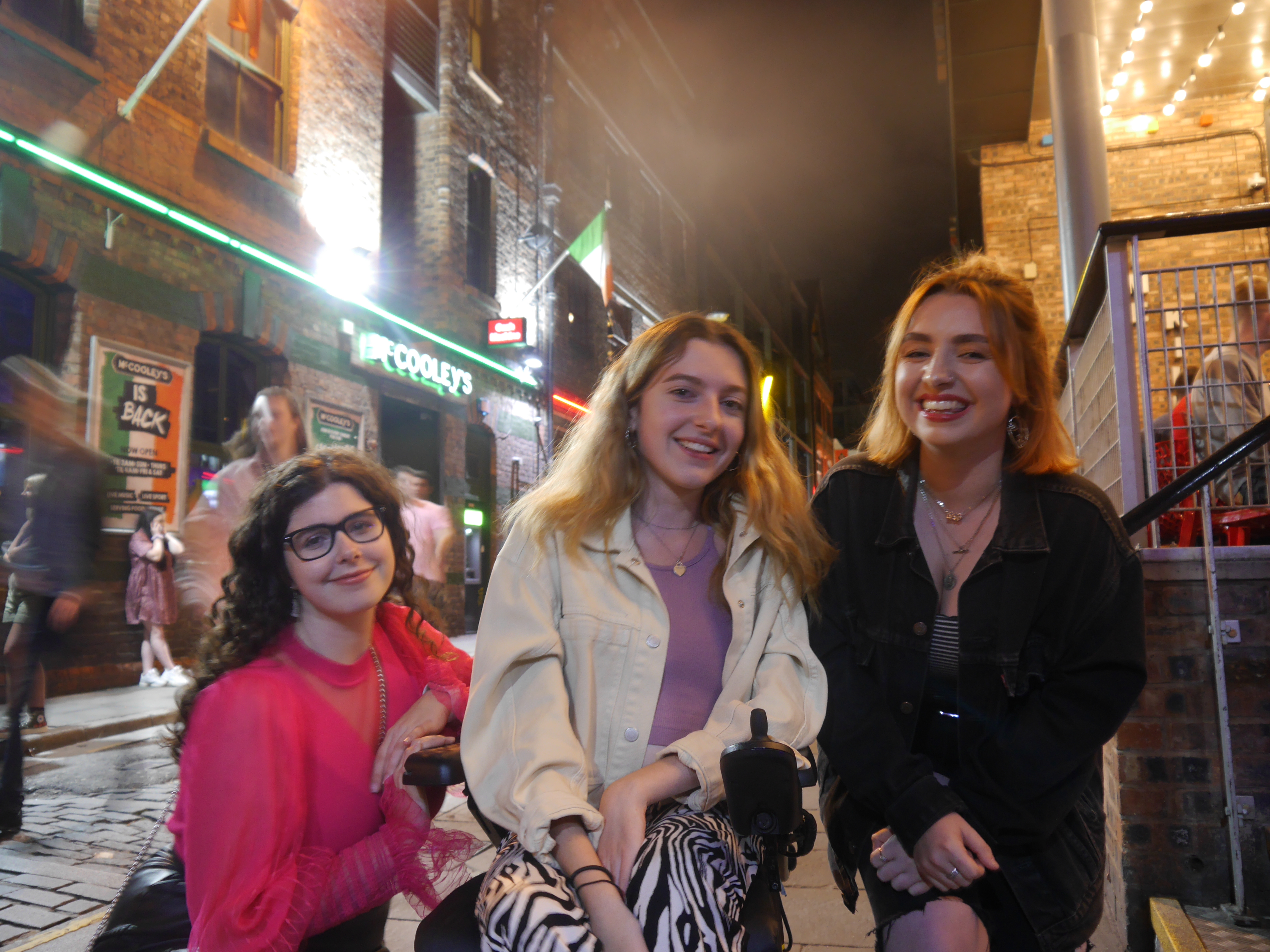
I join a queue for a club in Concert Square. I’m drinking low-calorie gin and tonic and reapplying some mascara. Two guys, Ethan and Ed, are rolling cigarettes and talking about Marxism in front of me. Ethan has bright eyes and keeps interrupting his friend. Ed nods very quickly. A girl in a fur coat comes over holding a small nest of tobacco in the palm of her hand — she wants a paper for a cigarette.
“Rah rah, can I have a rizla, I’m so posh,” Ed says.
“No, I’m not,” she says, steeling herself for a confrontation. She catches my eye and smiles conspiratorially.
“Where are you from?”
“Jersey.”
He tries to make a point about her coming from a tax haven but it’s clumsy.
“Except that’s not really how it works. You have to earn over a certain amount, over 60 grand. It’s only really for private businesses. No, it is. You should look it up. That’s not really what Jersey is like,” she rolls her eyes and walks away, her high heels clashing with the cobbled road.
The boys are third years, partying with younger students because they feel as though they missed out during the pandemic. Ed deferred his year in industry and spent a year at home working at his local golf club, and is now interning at an engineering firm, an opportunity he wouldn’t have had during lockdown. “That’s what they say about young people, that we all doss about,” he says. “Not me though.” Ethan shrugs when I ask about the impact of the pandemic. “I’m appreciating everything that’s going on. I realised what the importance of this is, how precious it all was when I was 15.” His best friend died when he was 15 from cystic fibrosis. “He was dying from the day he was born, apparently. They didn’t tell me that. But yeah. He went. We were 15. And I’ve learnt we’re lucky, lucky to have all this.”
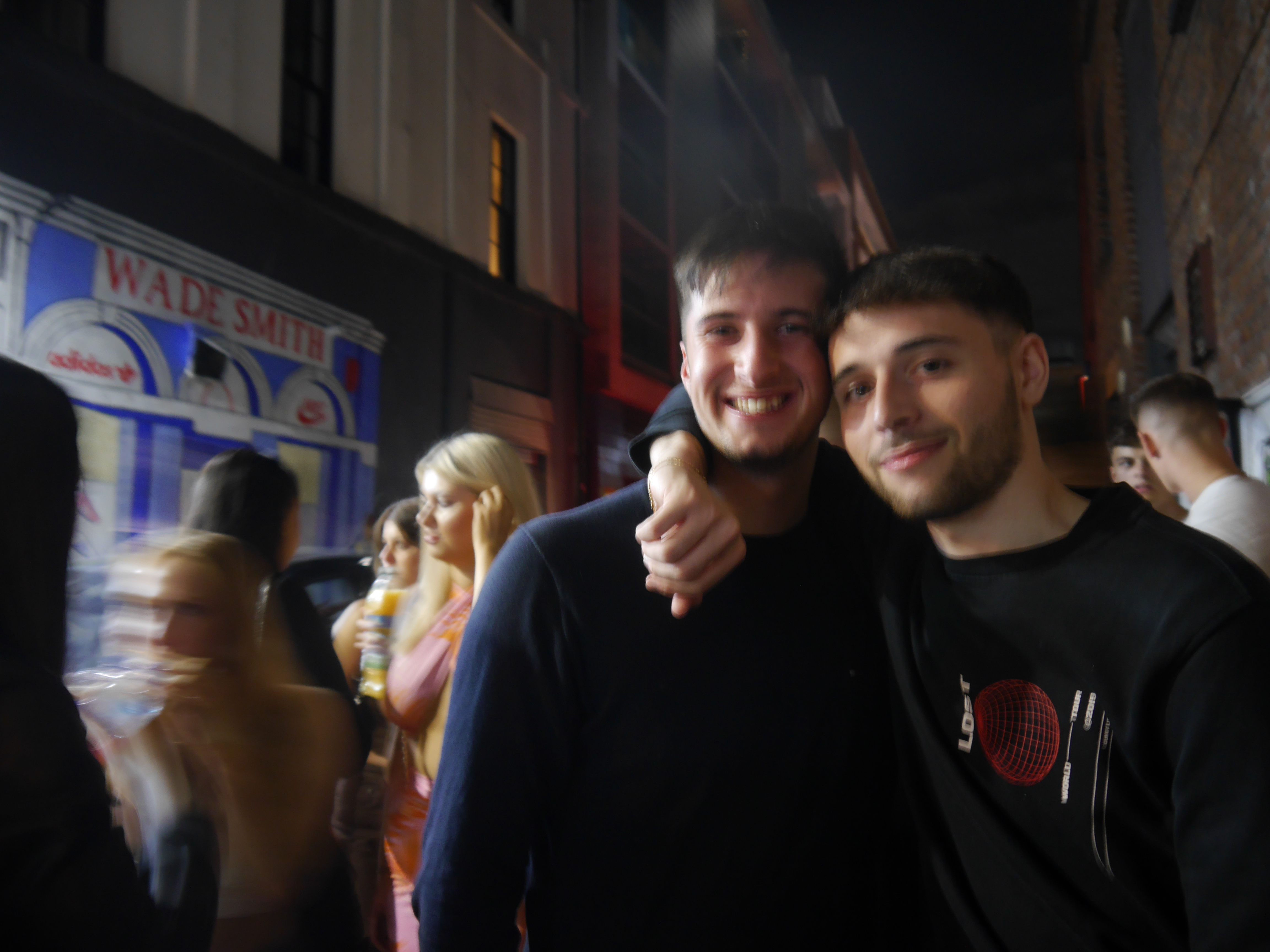
The air inside the club is warm. The boys push to the front of the bar. A girl cuts up some white powder with the precision of a chef wielding a sashimi knife. Five sports guys in identical white t-shirts try to catch the eye of a girl with heavy eyeliner and long legs. Two boys sit alone on a small table with their backs to the crowd.
George and Chris are those two hanging out on the periphery. George says freshers week isn’t really his thing. “Well like I have my home mates, and that was always easy, but this isn’t my thing, talking to people and meeting new people,” he says. Chris agrees. “I think it’s just hard to find a system of friends,” he says. What does he mean? “People around you who know you and who you can ask for help with things.”
When I meet Emilia, Zara, Lois and Leo, they’re commanding a large table, drinking squash and vodka and singing to Drake. Lois has caught a sore throat and mainly communicates through clinking her glass with mine and smiling. Leo’s eyes are dazed and misty. Zara has long limbs and dark eyes, and she’s looking animated. She’s 24, and about to start studying Zoology. It was the loneliness of lockdown that made her realise she was ready to go to university. “Life just happens so fast, doesn’t it?” she says. “And then you realise you might be missing things.”
She admits she feels anxious being an older student, but she fits in well. A song from Grease comes on and she and Emilia scream. They both know every word, and they start plotting to idle away tomorrow’s hangover with a film marathon. “The people here are lovely,” Zara says later, and pauses. “I feel like I’ve already got a strong group of friends here. Maybe closer than I have back home.”
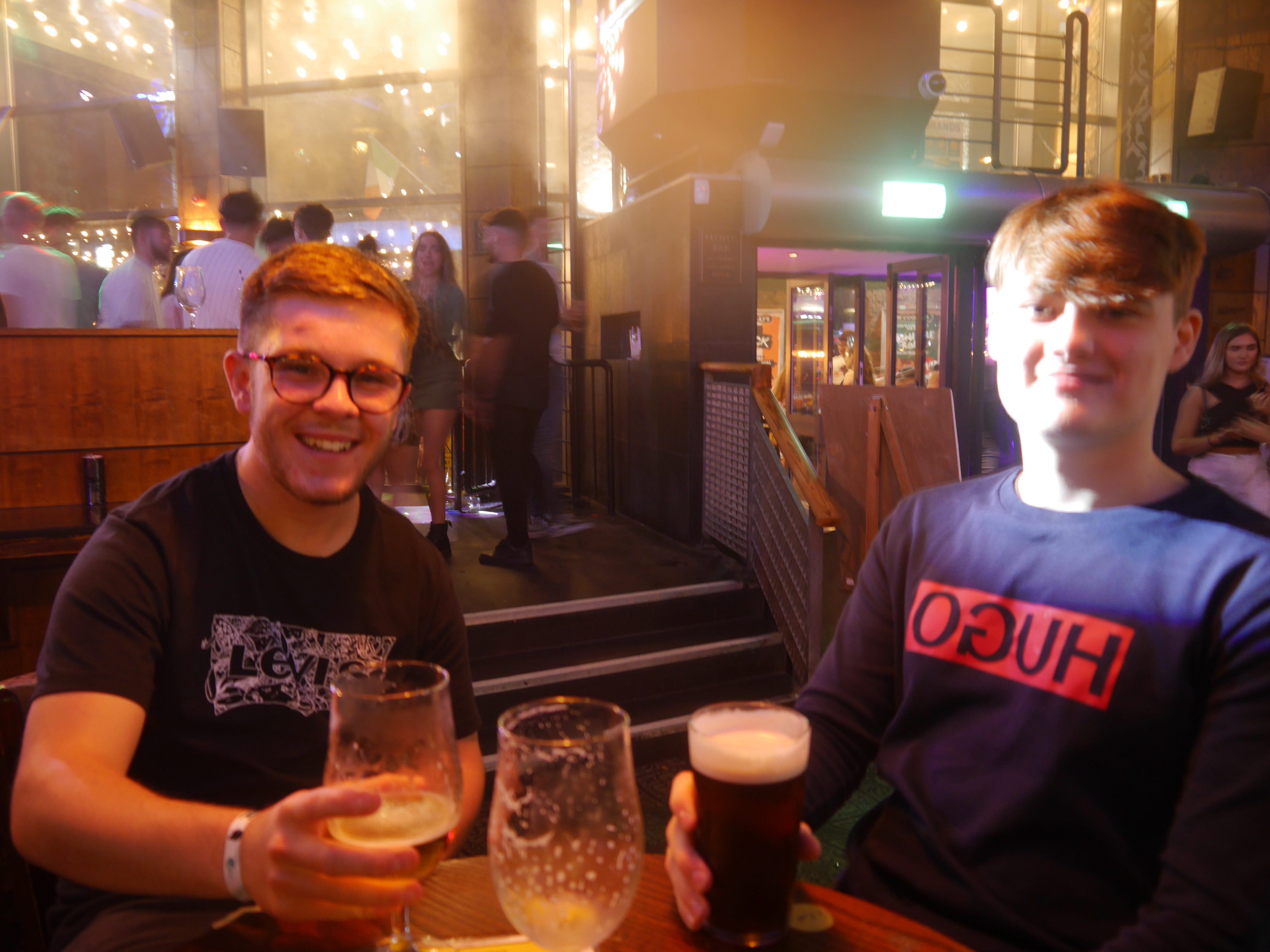
“This is a very journalist coat, isn’t it?” Emilia says. I’m wearing a little black dress and holding a black coat in my hands. She’s teasing me as if we’re already friends and I don’t have time to argue when she says she’s ordering us five shots. Emilia is from Wrexham, where she studied A Levels in science and law, and spent lockdown completely shielding because her dad was vulnerable (he’s a plumber and her mum is a secretary). As schoolwork intensified, her favourite teacher caught coronavirus and then pneumonia, and was unwell for months, so Emilia says she mostly taught herself. Now, she’s studying for a degree in Law and Physics, and plans to do a master’s.
“I worked hard, I really did,” she says, pouring us another drink. “I’ve been waiting for this. So I’m fully ready to enjoy myself.” Not everyone is as well-adjusted though. She tells me about a girl in their flat who doesn’t socialise with them and won’t give much of herself away. “We invite her to everything,” Emilia says. “Every night out. But she just doesn’t want to.” Zara shrugs helplessly. “I’m trying to give her space,” Emilia says, “but I think she just wants to move out. She hates our accommodation. But she was saying she’s asked and she’s stuck in the tenancy, so I don’t think she can leave.”
On the dance floor, Lois and Leo are spinning each other around and laughing. Emilia is messaging the guy she’s seeing. ‘If you’re lucky you might get a visit from me later,’ he says. A red strobe light flashes across her face. A few minutes later, she shows me a message that just says, ‘Good girl’. Snapchat erases messages after ten seconds unless you save them, so there’s no record of what they’ve previously said, just a fleeting vision of the present moment.
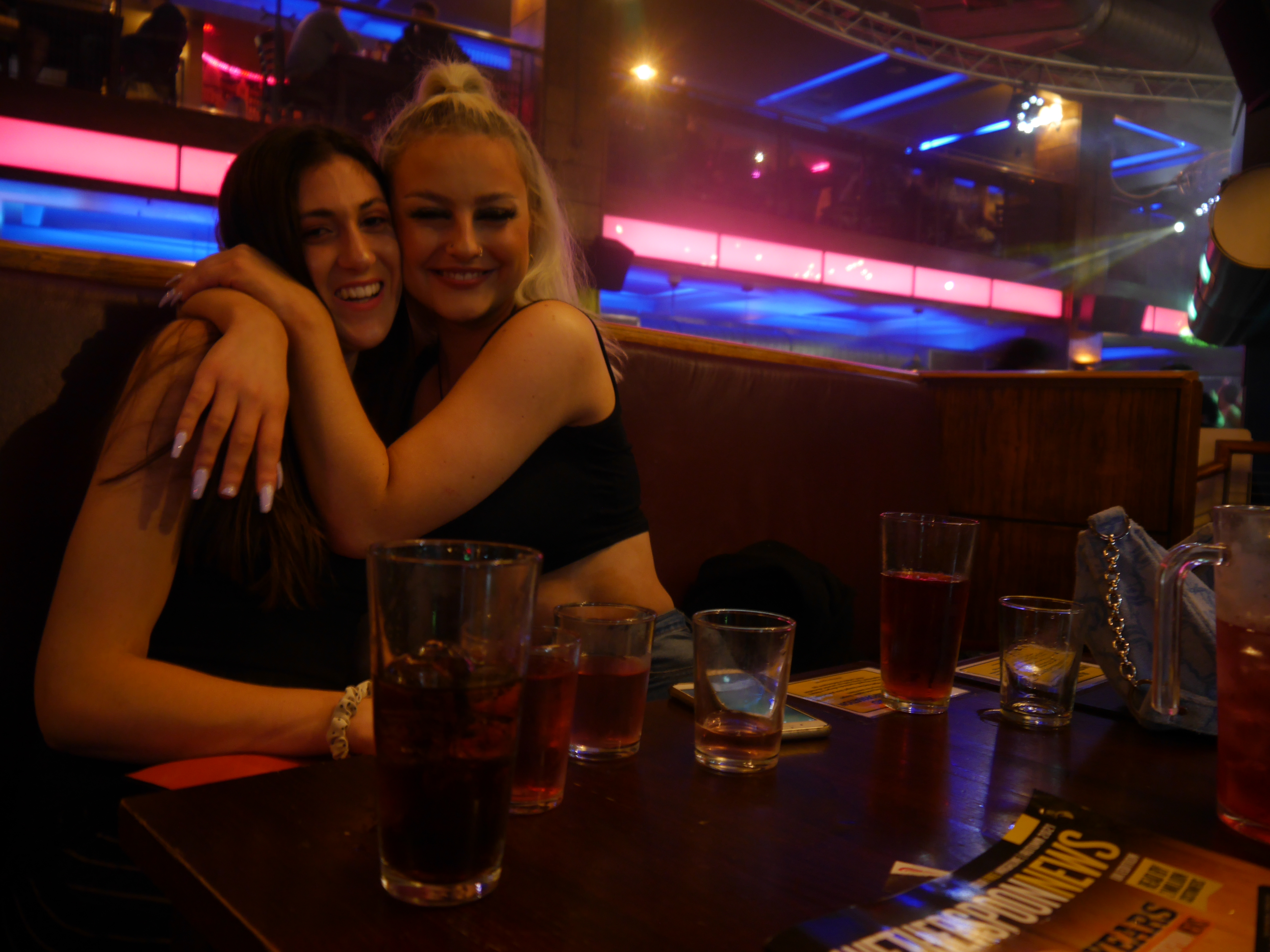
So it continues. Two boys are kicked out by security and Zara and another girl steal the drinks they left on their table. “You’re giving me eyes like you want me to kiss you,” a boy says to a girl in lilac who looks like she uses expensive shampoo. A shy, awkward boy looks thrilled in the company of well-dressed hipsters and a guy in a Bronski Beat t-shirt. This is the promise of freshers week: to reinvent yourself, dissolve away high school hierarchies with hard alcohol, fall in love for five minutes and forget everyone’s name.
I realise I’ve lost Emilia, and I’m swaying slightly. A bartender collecting empty glasses touches my wrist with her free hand and asks if I’m okay. Yeah, I say. I wander outside. The pulse of the crowd at Concert Square is fading, and the road leading up Bold Street towards the takeaways and taxi rank begins to flow with people.
On the fringes of a zoo party, a girl dressed as a cat pounces on me. “You’re a journalist? I want to be a journalist! This is controversial, but I want to be like Piers Morgan,” she tells me. Some passersby glare at her. “But right now, I’m a leopard.” Her name is Layla, and she’s from London. Her whiskers, painted in black kohl, are smudged and her eyes are bright. She’s delighted to hear I studied at Manchester. “Say chips and gravy! Gra-a-a-vy,” she squeals. She’s less interested when she hears I don’t have the accent.
I look around and the night shows signs of winding down. The dance floors empty out. I hail a taxi. “You’re not going to throw up, are you?” the driver asks. I shake my head and get in. As we drive away, the sun starts to rise again.

Comments
Latest
Michael Heseltine 'saved' Liverpool. Didn't he?
Cheers to 2025
Searching for enlightenment in Skelmersdale
I’m calling a truce. It’s time to stop the flouncing
'I've been waiting for this': a freshers night out in Liverpool
The thoughts of Liverpool's newest students